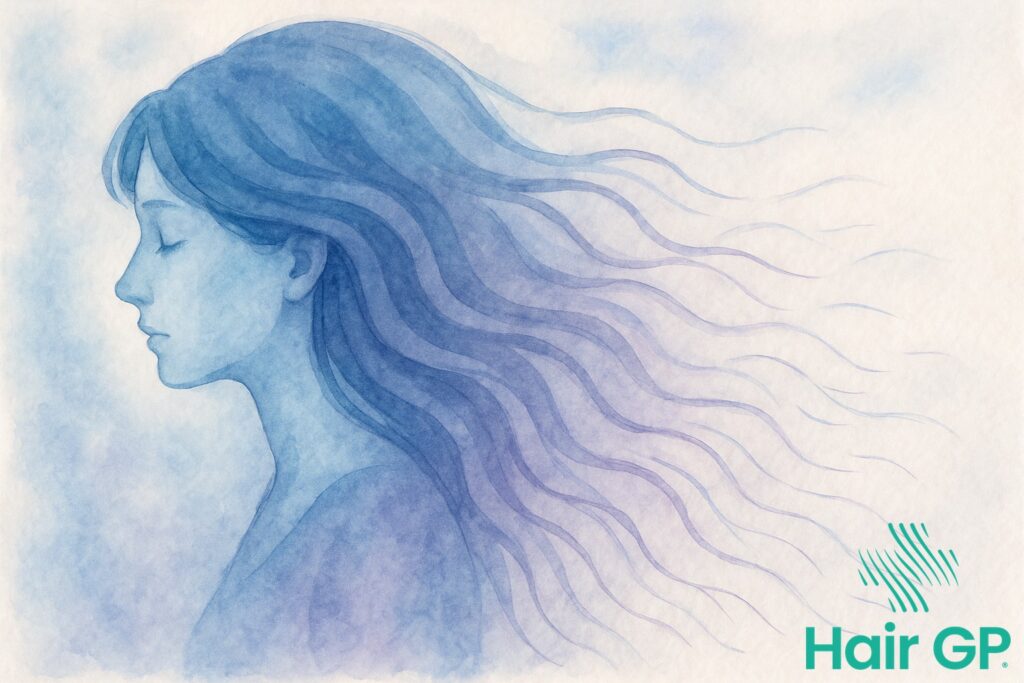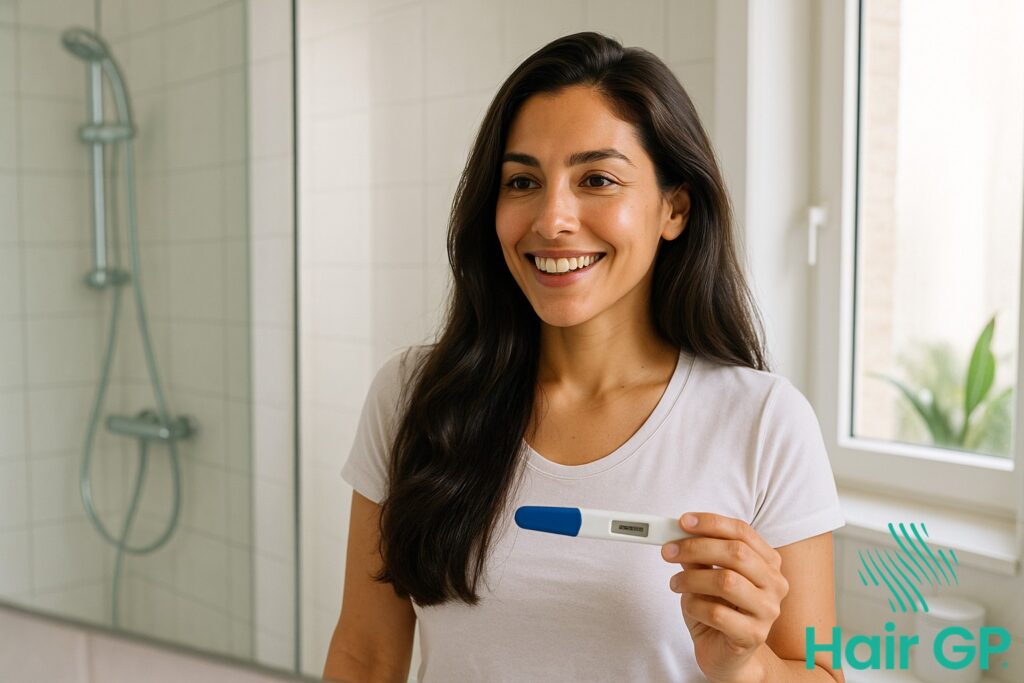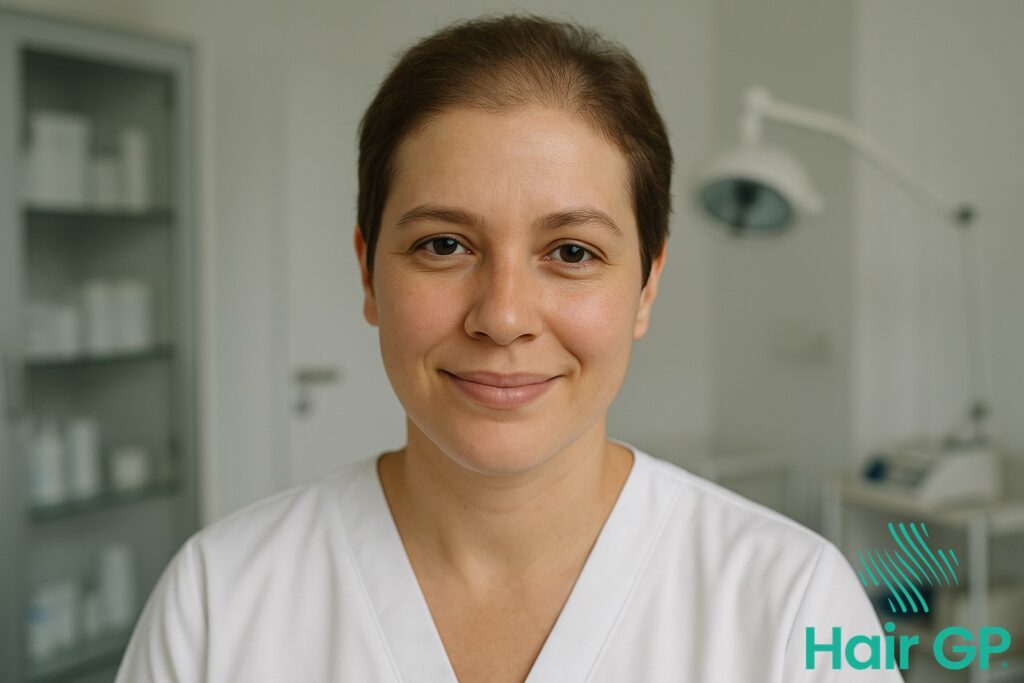Introduction
Experiencing a miscarriage is one of life’s most profound losses, bringing waves of grief and emotional stress that affect every aspect of wellbeing. Whilst navigating the emotional aftermath of pregnancy loss, many women encounter an unexpected physical change: significant hair shedding. This additional concern can feel overwhelming when you’re already coping with immense loss, yet it’s a remarkably common experience that often goes unacknowledged in discussions about miscarriage recovery.
Hair loss following miscarriage typically emerges weeks or months after the initial loss, catching many women off guard just as they begin processing their grief. This delayed response occurs because the body undergoes dramatic hormonal shifts and stress responses that disrupt normal hair growth patterns. Understanding why this happens can provide comfort and reassurance during an already challenging time.
This article explores the intricate connections between miscarriage, emotional trauma, and hair health. We’ll examine the scientific mechanisms behind stress-induced hair shedding, helping you understand what’s happening at a physiological level. You’ll learn about the typical timeline for this type of hair loss, including when shedding usually begins and how long recovery takes. We’ll also discuss how grief and emotional stress create physical changes that impact hair growth, and most importantly, we’ll provide practical guidance on treatment options and supportive care strategies.
Remember, whilst hair loss after miscarriage can be distressing, it’s usually temporary. With proper understanding and gentle care, most women experience full hair recovery as their bodies and hearts heal from loss.
Key Takeaways – TL/DR
- Hair loss after miscarriage is a normal response affecting up to 50% of women due to hormonal changes and stress
- Telogen effluvium typically begins 2-3 months after pregnancy loss and can last 6-12 months
- The combination of physical and emotional stress from miscarriage disrupts the normal hair growth cycle
- Most women experience complete hair regrowth within one year with proper nutrition and stress management
- Seeking mental health support is crucial for both emotional healing and physical recovery
Understanding Hair Loss After Miscarriage
Hair loss following pregnancy loss represents a normal response to the dramatic hormonal changes and physical stress that accompany miscarriage. Research indicates that up to 40-50% of women experience noticeable hair shedding after early pregnancy miscarriage, typically beginning 2-3 months following the loss[1]. Understanding these biological mechanisms can help normalise this distressing experience during an already challenging recovery period.
Hormonal Shifts During Early Pregnancy Loss
When miscarriage occurs, the body undergoes abrupt hormonal changes that significantly impact hair follicles and their growth cycles. During pregnancy, elevated oestrogen and progesterone levels keep hair in the anagen (growth) phase longer than usual. Following pregnancy loss, these hormone levels plummet rapidly, with oestrogen dropping by up to 90% within days. This sudden shift triggers a synchronised transition of hair follicles from the growth phase into the telogen (resting) phase, preparing them for eventual shedding.
The disruption of normal hair growth phases means that whilst the hormonal changes occur immediately, the actual hair shedding becomes noticeable approximately 8-12 weeks later. This delayed response often catches women off-guard, as it coincides with a time when they may be beginning to process their grief and attempt to move forward.
Physical Stress Response
Beyond hormonal fluctuations, the body’s stress response to miscarriage contributes significantly to hair loss. Cortisol elevation, a hallmark of physical and emotional stress, disrupts the hair growth cycle and can trigger telogen effluvium. The physical trauma of miscarriage often leads to nutritional depletion, particularly of iron and protein, essential nutrients for healthy hair growth. Additionally, the immune system’s response to pregnancy loss can create inflammatory conditions that further compromise hair follicle health, creating a compounded effect that manifests as increased hair shedding months after the initial loss.
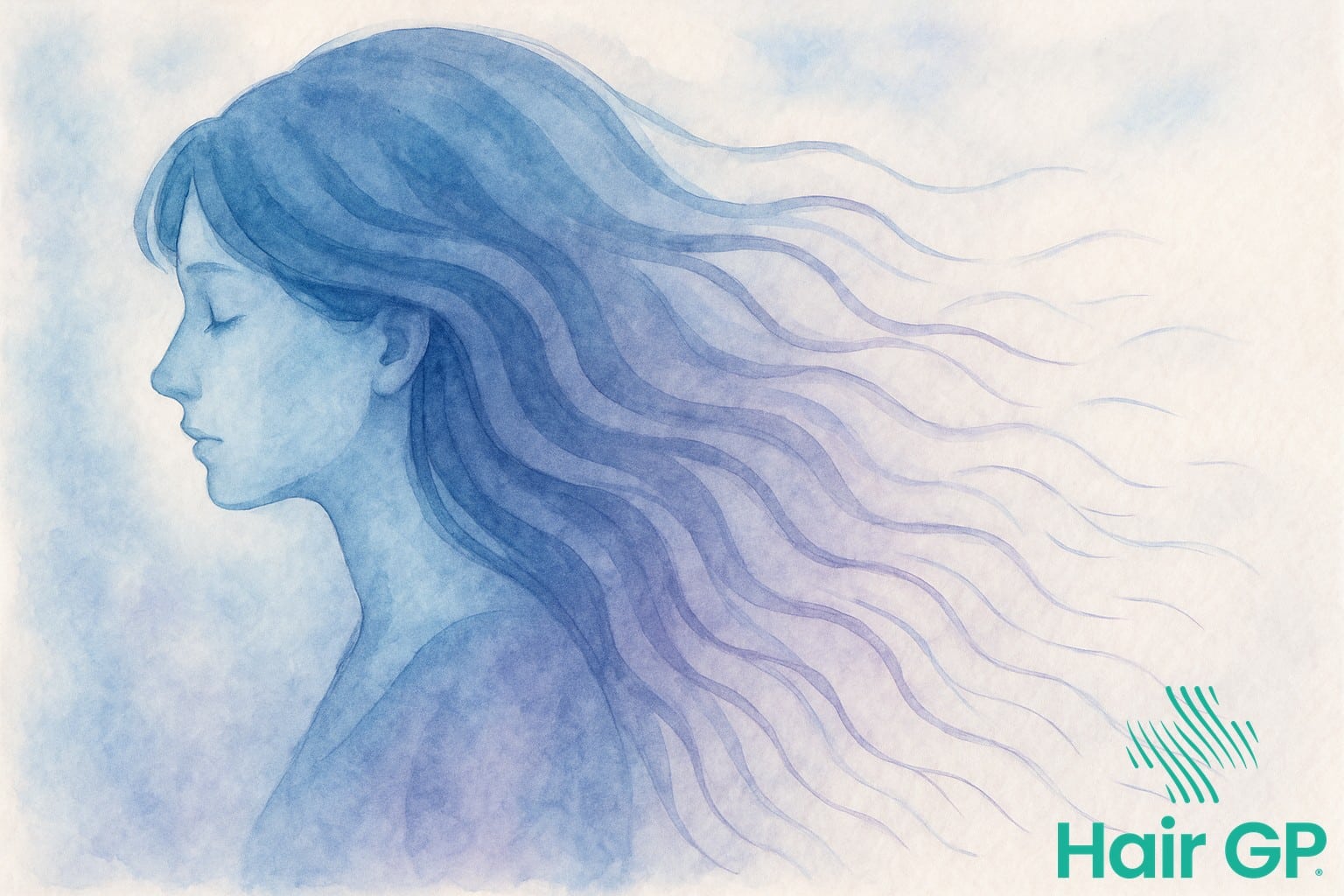
The Science of Telogen Effluvium
Telogen effluvium represents a specific form of temporary hair loss triggered by significant physical or emotional stress, including the trauma of miscarriage. This condition, characterised by diffuse hair shedding across the scalp, occurs when normal hair growth patterns become disrupted, causing more hairs than usual to enter the resting phase simultaneously.
Normal Hair Growth Cycle
Understanding telogen effluvium requires knowledge of the typical hair growth cycle. Each hair follicle independently progresses through three distinct phases[2]. The anagen growth phase lasts 2-7 years, during which hair actively grows. This transitions into the catagen transition phase, a brief 2-3 week period where growth ceases and the follicle shrinks. Finally, the telogen phase represents the resting period lasting approximately 3 months before the hair naturally sheds and the cycle begins anew. Under normal circumstances, roughly 85-90% of hair follicles remain in the anagen phase, whilst 10-15% rest in the telogen phase.
How Stress Triggers Telogen Effluvium
When significant stress occurs, such as miscarriage, the delicate balance of the hair growth cycle becomes disrupted. Stress hormones, particularly cortisol, can prematurely push active follicles from the anagen phase into the telogen phase[3]. This follicle synchronisation means that instead of the typical 10-15%, up to 30% or more of hair follicles may simultaneously enter the resting phase[4]. The characteristic delayed shedding timeline of telogen effluvium typically manifests 2-3 months after the triggering event, coinciding with the natural duration of the telogen phase. This condition is appropriately called telogen effluvium, literally meaning “outflow of telogen hairs,” distinguishing it from other forms of hair loss through its reversible nature and diffuse shedding pattern.
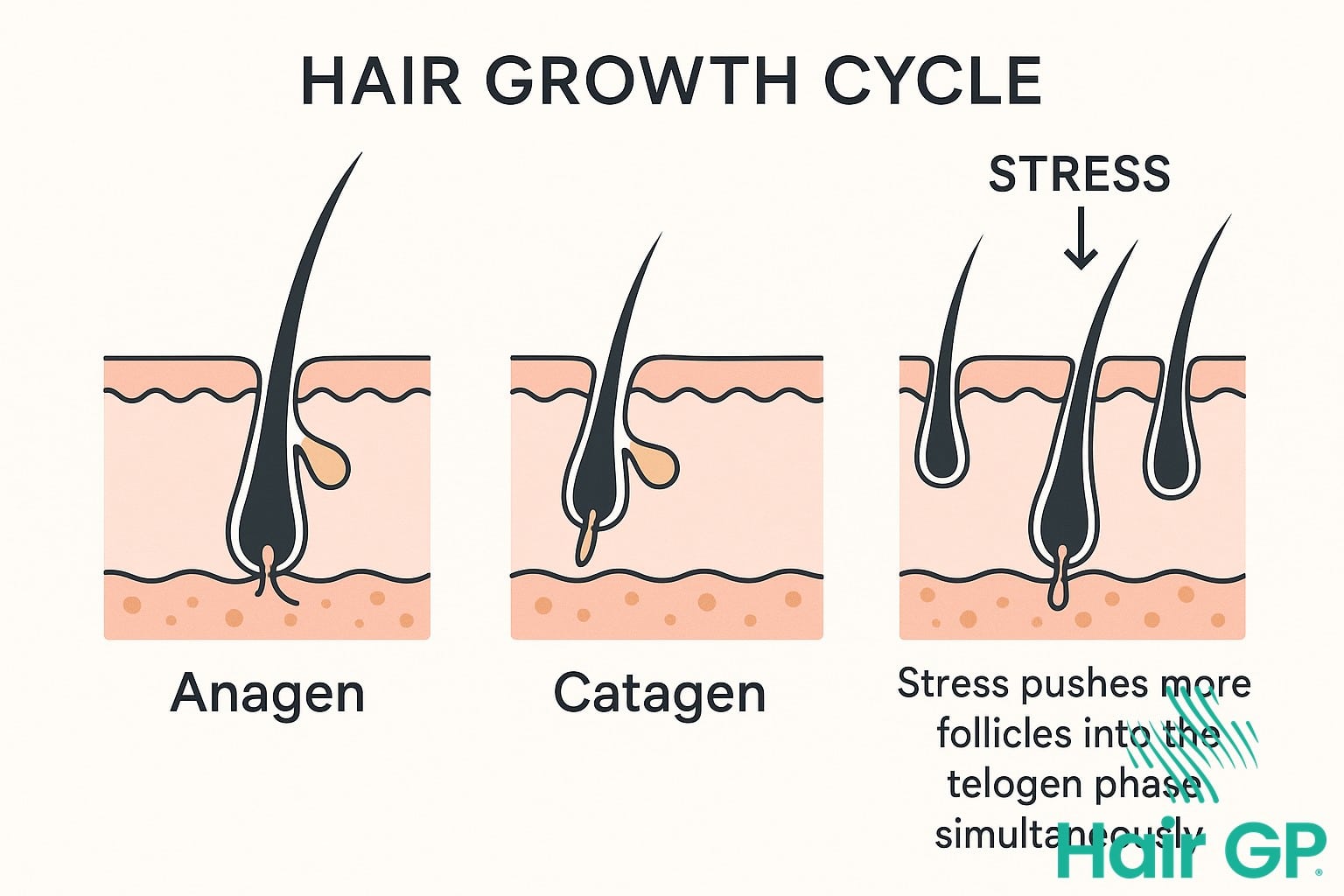
Emotional Impact on Hair Health
The emotional toll of miscarriage extends beyond psychological suffering, creating profound physiological changes that directly impact hair health. When grief and emotional stress overwhelm the body’s systems, they trigger hormonal cascades that disrupt normal hair growth patterns, illustrating the deep connection between mental health and physical wellbeing.
Grief and Stress Hormones
The experience of grief following pregnancy loss triggers significant elevations in cortisol and other stress hormones. Research demonstrates that bereaved individuals show cortisol levels up to 50% higher than baseline for several months after loss [5]. This chronic elevation of stress hormone production creates a hostile environment for hair follicles, pushing them prematurely into the resting phase.
Beyond cortisol, grief activates inflammatory responses throughout the body. The sustained inflammatory state damages hair follicle stem cells and disrupts the delicate balance needed for healthy hair growth. Sleep disruption, nearly universal during bereavement, compounds these effects by preventing the nocturnal hormone regulation essential for follicle recovery and regeneration.
Behavioural Changes Affecting Hair
Depression following miscarriage often manifests in behavioural changes that further compromise hair health. Studies link depression with a 28% increased risk of developing alopecia [6]. Appetite changes during grief frequently lead to nutritional deficiencies, particularly in iron, zinc, and B vitamins crucial for hair growth.
Self-care routines typically deteriorate during intense emotional stress. Women may neglect regular hair care, skip meals, or develop irregular sleep patterns. These behavioural shifts create a cascade effect: poor nutrition weakens hair structure, disrupted sleep impairs follicle regeneration, and reduced grooming can lead to mechanical damage from matting or breakage.

Timeline and Recovery Expectations
Understanding the recovery timeline for hair loss following miscarriage can help manage expectations during this challenging period. Typically, noticeable shedding begins approximately 2-3 months after pregnancy loss, similar to postpartum hair loss patterns. This delay occurs because hair follicles take time to transition from the growth phase to the resting phase before falling out.
Peak shedding usually occurs between months 3-5 post-miscarriage, when daily hair loss may seem alarming but is actually part of the natural recovery process. During this time, women might notice increased hair in brushes, shower drains, or on pillows. This temporary increase in hair loss represents the synchronised shedding of hairs that remained in the growth phase during pregnancy.
The encouraging news is that hair regrowth typically begins whilst shedding is still occurring. Most women notice new hair growth sprouting around month 4-6, appearing as shorter hairs along the hairline and throughout the scalp. Complete recovery of hair health and density generally takes 6-12 months, though individual timelines vary based on overall health, nutrition, and stress levels. Consistent hair care practices and patience during this recovery timeline support optimal regrowth outcomes.
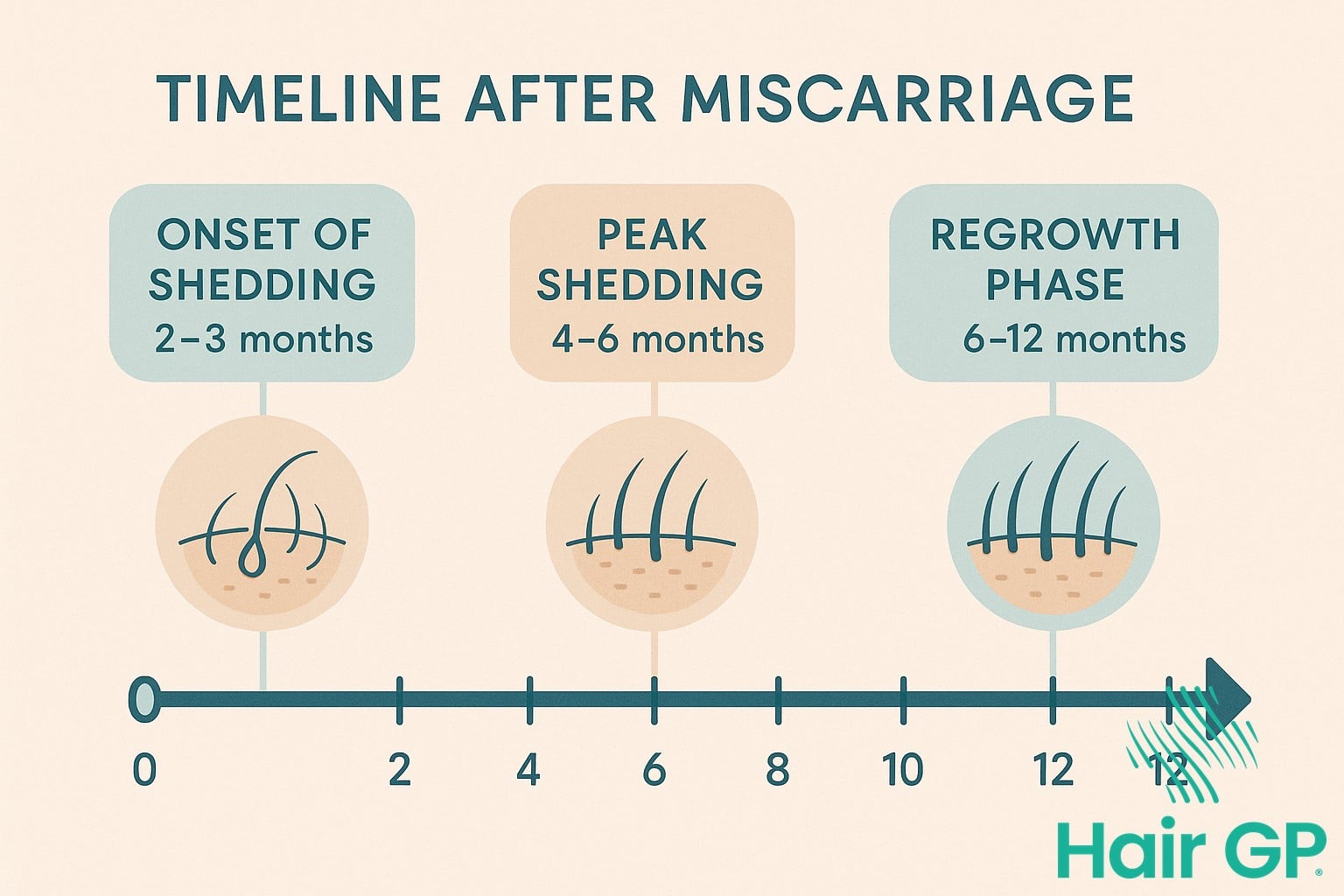
Treatment and Support Options
Managing post-miscarriage hair loss requires a multifaceted approach combining nutritional support, gentle care practices, and patience during recovery. Whilst telogen effluvium typically resolves within 3-6 months, implementing appropriate treatment options can promote healthy hair growth and minimise further damage.
Nutritional Support
Addressing nutritional deficiencies plays a crucial role in hair recovery. Iron deficiency, affecting up to 30% of women with telogen effluvium, requires supplementation when ferritin levels fall below 50 μg/L [7]. Vitamin D supplementation may benefit those with levels below 30 ng/mL, whilst B-complex vitamins, particularly B12, support keratin production. Adequate protein intake of 1.2-1.6g per kilogram body weight ensures sufficient building blocks for hair regeneration.
Gentle Hair Care Practices
Minimising hair damage during recovery requires avoiding harsh treatments and heat styling tools. Gentle brushing with wide-tooth combs, starting from ends and working upwards, reduces mechanical stress on fragile hair [5]. Protective hairstyles like loose braids prevent tangling without creating tension. Using silk pillowcases and avoiding tight elastics further protects vulnerable strands. Emotional support through this process remains essential, as stress reduction aids recovery.
Conclusion
Hair loss following miscarriage represents a normal response to the profound physical and emotional changes your body experiences. Understanding that this condition is typically temporary can provide reassurance during an already challenging time. Most women experiencing post-miscarriage hair loss will see significant improvement within six to twelve months as hormonal balance returns and the body completes its recovery process.
The path to healing extends beyond physical restoration alone. Comprehensive recovery involves nurturing both body and mind through proper nutrition, gentle self-care practices, and seeking emotional support when needed. Whether through professional counselling, support groups, or trusted loved ones, addressing the psychological aspects of miscarriage proves equally vital for overall wellbeing and hair regrowth.
Remember that each woman’s recovery journey unfolds uniquely. Whilst hair loss may feel distressing, it reflects your body’s natural healing process rather than a permanent change. By approaching recovery holistically—combining medical guidance, nutritional support, stress management, and emotional care—you create optimal conditions for both hair regrowth and overall healing. Be patient with yourself, honour your experience, and trust that with time and proper care, this challenging phase will pass.
Frequently Asked Questions
Hair loss affects approximately 40-50% of women after miscarriage. This condition, called telogen effluvium, is a normal response to the physical and emotional stress of pregnancy loss combined with sudden hormonal changes.
Hair shedding usually begins 2-3 months after the miscarriage occurs. This delay happens because affected hair follicles enter the telogen (resting) phase immediately after the stressful event but don’t shed until this phase completes.
Yes, recurrent miscarriage can lead to more pronounced hair thinning due to repeated cycles of hormonal fluctuations and cumulative emotional stress. Women experiencing recurrent loss should work closely with healthcare providers to address both physical and mental health needs.
Both involve telogen effluvium triggered by hormonal changes, but miscarriage-related hair loss often includes the additional impact of grief and trauma. The emotional toll can prolong recovery compared to typical postpartum shedding after giving birth.
Consult a healthcare provider if hair loss is severe, lasts longer than 6 months, or is accompanied by other symptoms like extreme fatigue or skin changes. They can check for underlying medical conditions or nutritional deficiencies that may need treatment.
References
- Grymowicz M, Rudnicka E, Podfigurna A, Napierala P, Smolarczyk R, Smolarczyk K et al.. Hormonal Effects on Hair Follicles. Int J Mol Sci. 2020. PMID: 32731328
- Hoover E, Alhajj M, Flores JL. Physiology, Hair. StatPearls. 2023. PMID: 29763123
- Grover C, Khurana A. Telogen effluvium. Indian J Dermatol Venereol Leprol. 2013. PMID: 23974577
- Asghar F, Shamim N, Farooque U, Sheikh H, Aqeel R. Telogen Effluvium: A Review of the Literature. Cureus. 2020. PMID: 32607303
- O'Connor MF, Wellisch DK, Stanton AL, Olmstead R, Irwin MR. Diurnal cortisol in Complicated and Non-Complicated Grief: slope differences across the day. Psychoneuroendocrinology. 2012. PMID: 21925795
- Vallerand IA, Lewinson RT, Parsons LM, Hardin J, Haber RM, Lowerison MW et al.. Assessment of a Bidirectional Association Between Major Depressive Disorder and Alopecia Areata. JAMA Dermatol. 2019. PMID: 30649133
- Trüeb RM. Serum Biotin Levels in Women Complaining of Hair Loss. Int J Trichology. 2016. PMID: 27601860

